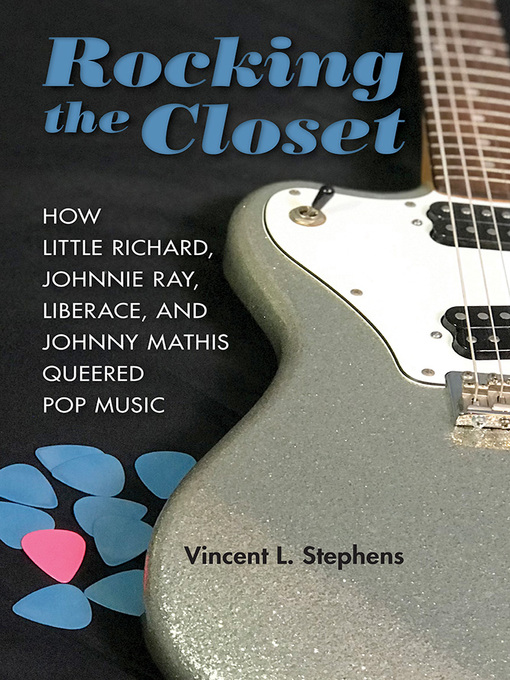Rocking the Closet
How Little Richard, Johnnie Ray, Liberace, and Johnny Mathis Queered Pop Music
1 of 1 copy available
1 of 1 copy available
"Well-argued and thoughtful." —Arts Fuse
"The contemporary mainstream LGBT narrative claims that artists should out themselves for the greater good. But Rocking the Closet makes a persuasive case that 'open secrecy' helped make stars of Little Richard, Liberace, Johnny Mathis, and Johnny Ray in the decades prior to and after Stonewall. These (until now) academically under-examined, yet enormously successful and influential musicians used the surprising leeway of the glass closet to develop artistic personae that were both appealing and ambiguous, leading to commercial success that rivals that of our current musicians. Stephens' insightful intersectional book will liven the debate in identity and popular culture scholarship!"—Shana Goldin-Perschbacher, Temple University
"The spirit of Rocking the Closet is enjoyed in how deftly Stephens illuminates those nuances. He is as lucid about the music as about the cultural moment, the entertainment business, and the lives of the musicians." —On the Seawall
|Vincent L. Stephens is the director of the Popel Shaw Center for Race & Ethnicity and a contributing faculty member in music at Dickinson College. He is a coeditor of Post Racial America? An Interdisciplinary Study.
-
Creators
-
Series
-
Publisher
-
Release date
October 16, 2019 -
Formats
-
Kindle Book
-
OverDrive Read
- ISBN: 9780252051661
-
EPUB ebook
- ISBN: 9780252051661
- File size: 4344 KB
-
-
Languages
- English
Loading
Why is availability limited?
×Availability can change throughout the month based on the library's budget. You can still place a hold on the title, and your hold will be automatically filled as soon as the title is available again.
The Kindle Book format for this title is not supported on:
×Read-along ebook
×The OverDrive Read format of this ebook has professional narration that plays while you read in your browser. Learn more here.
